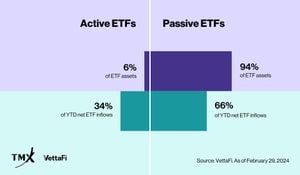The recent closures of three Ito-Yokado stores mark a significant strategic shift for Seven & I Holdings, as the company focuses on profitability amid continuous financial losses. On the 24th, Ito-Yokado, the comprehensive supermarket chain under Seven & I Holdings, concluded the operations of three of its stores located across the Kanto region: the Ryugasaki store in Ibaraki Prefecture, the Nishi-Kawaguchi store in Saitama Prefecture, and the Anesaki store in Chiba Prefecture. This action signals the company's calculated retreat from less profitable areas, particularly from Ibaraki, allowing them to concentrate efforts on the metropolitan Tokyo area, where they see greater potential for revenue.
Seven & I Holdings has been facing severe financial challenges, reporting four consecutive years of net losses leading up to the fiscal year 2024. The closures announced are part of Ito-Yokado's broader restructuring strategy, which first surfaced back in March 2023 as management made clear their plan to eliminate unprofitable stores. This recent move brings the total number of closed stores to 34, highlighting the urgency and depth of the changes the company is instituting.
Industry analysts have cited the shift as part of broader trends within Japan's retail sector, which has seen declining sales and increased competition from online retailers and discount chains. For Ito-Yokado, the challenge has been to adapt to these changing consumer behaviors. The company has been transparent about its performance, with reports indicating sustained losses from unprofitable locations primarily outside of metropolitan hubs, driving the decision to focus on expansion where consumer spending remains steady.
Following these closures, Seven & I Holdings has indicated its intention to open new stores within areas it deems as providing higher profit margins. By honing their focus on major urban centers, they aim not only to consolidate their market presence but also to lay the groundwork for future growth. The company has expressed confidence about these new pursuits, maintaining its commitment to adapt to market changes and consumer demands.
Stakeholders within the industry will be watching closely to see how the brand's strategic realignment plays out, especially as the retail environment continues to evolve post-pandemic. Ito-Yokado’s ability to recapture market interest and generate profitable operations will be closely monitored as the company embarks on this next chapter.
Officials of Seven & I Holdings have underscored the importance of making these difficult decisions to set the stage for sustainable long-term operations. "The closures represent the end of our efforts to decrease the number of unprofitable stores," company representatives stated, shedding light on the challenges overseen by the management team leading the company through these tumultuous times.
This restructuring approach isn't just about cutting back; it's also about recalibrated investment and focus. By leaving behind unprofitable entities, Ito-Yokado aims to leverage its resources more efficiently and capitalize on stable revenue streams from urban destinations. Whether this will prove effective remains to be seen, but the course correction is pivotal for sustaining the overall health of the brand.
With the finality of these closures, Seven & I Holdings finds itself at crossroads, shaping the future of Ito-Yokado against the backdrop of shifting consumer preferences and economic challenges. This calculated maneuver is not just about survival; it's about fortifying the brand's identity within the competitive retail market, ensuring its relevance for consumers who continue to demand convenience, quality, and accessibility.



